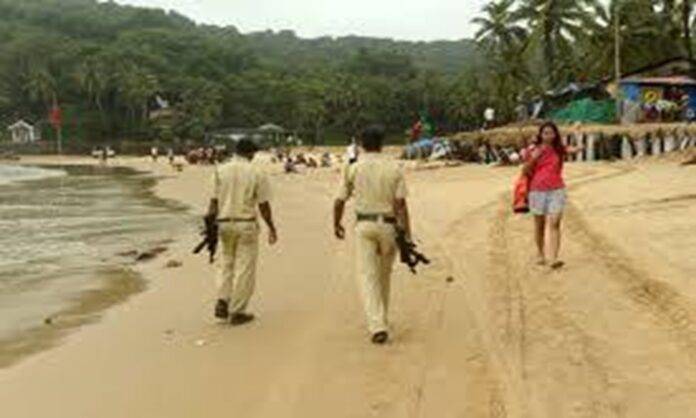With the current system in Goa, it is difficult to patrol and monitor the 160 km long coastline effectively. In such a situation, incidents like consumption of alcohol and drugs, activities of touts, fraud cases etc. on various beaches here remain a big problem. To deal with these situations, the need was felt for a force that has an understanding of various aspects of hospitality, tourism, security and has the authority, resources and capability to deal with all kinds of situations.
A large number of tourists come to Goa not only from different parts of the country but also from abroad and since tourism contributes significantly to Goa’s economy in terms of revenue, it is obvious to give priority to the convenience and security of tourists. Since, Tourism and law and order are two different departments and their priorities are also different. In such a situation, many times the lack of coordination between them to take action in some cases creates complication , delay or any challenging situation. The solution to these situations was seen in the form of a force that has police powers along with an understanding of tourism and law and which works under the leadership of a single officer. All those elements have been included in the bill to be brought for the formation of the proposed security force that meet these needs.
The tourism security force will have the power to arrest and fine ‘touts’, a ‘sustainability’ fee for tourism enterprises and incentives for sustainable tourism – these are some of the changes proposed in the draft tourism bill to be introduced in the monsoon session of the state assembly next month.
The Goa Tourism Promotion, Management and Regulation Bill, 2024, prepared by the state tourism department, has the stated aim of consolidating and amending laws applicable to tourism and “protecting, preserving and maintaining the natural and cultural heritage of the state to ensure that it remains a preferred destination for tourists.”
The proposed draft bill will repeal two existing laws governing state tourism – the Goa, Daman and Diu Tourist Business Registration Act, 1982 and the Goa Tourist Sites (Conservation and Maintenance) Act, 2001.
“The tourism security force will have the power to arrest in case of non-bailable and cognizable offences, search any person found guilty of violation and seize his belongings, collect evidence and impose and recover fines for offences of nuisance and touting,” the draft says. It also says that the force “will coordinate with all departments and institutions of the state to ensure the safety of tourists in the tourism cluster.”
The draft bill says the state tourism director will be responsible for the deployment of the tourism security force. Meanwhile, the “tourist guards” will assist the authorities in prevention of crimes against tourists and ensure their safety, assist the local administration and police in preventing drug trafficking, illegal sale or consumption of illicit liquor, detain any person violating the provisions of the Act, alert tourists about touts and assist the local administration and police in taking necessary action.
The Goa Police already has a specialised “tourist police” unit. Established in 1990, the unit aims to ensure safety of tourists at tourist destinations.
According to the police website: “The Tourist Police, apart from ensuring law and order for the visiting tourists, also assists the Tourism Department in implementing the provisions of the Goa Tourist Business Registration Act, 1982, which regulates tourism related activities in the state.”
Tourism minister Rohan Khaunte said a legal framework was needed to curb touting and other illegal activities as offenders often escape severe punishment under existing provisions.















